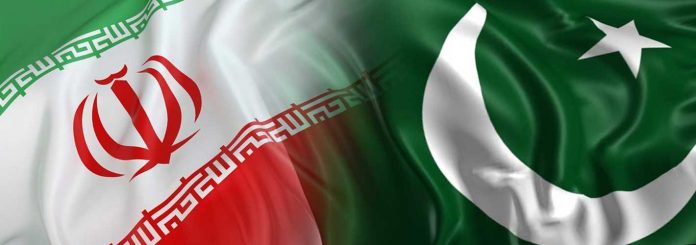ISLAMABAD: While there still are many stumbling blocks in improving trade between Iran and Pakistan, a high powered business delegation of Iran visited Pakistan on Sunday to seek opportunities and possibilities of joint ventures and improve bilateral trade between the neighbouring countries.
The visiting delegation of 30 business representatives was headed by Iranian Foreign Minister Mohammad Javad Zarif, who also held an important meeting with Pakistan Minister for Foreign Affairs Khawaja Muhammad Asif and other high officials in Islamabad. During the visit, Muhammad Zarif is scheduled to hold meetings with President Mamnoon Hussain and Prime Minister Shahid Khaqan Abbasi.
According to available documents, the 30-member business delegation comprising representatives from economic, trade and business sectors are attending the Pakistan Iran Business Forum to be held in Karachi on March 13. The forum will also be addressed by Javad Zarif and other officials from both countries.
Iranian business leaders are to hold key meetings and sign Memorandum of Understandings (MoU) here from March 11 to 14. The visiting business group includes members and representatives from oil appliances, power, textile, chemical, agriculture, trading, transportation, food, medical equipment, nanotechnology, pharmaceuticals, carpets, drugs, construction material, petrochemicals, and various other sectors.
The removal of major sanctions from Tehran has paved the way for the two countries to move forward and increase bilateral trade and has made it possible for the visiting group to explore potential business opportunities in Pakistan.
However, according to sources, there is not a lot of optimism for an increase in trade between the two countries, given the past trend and behaviour by both the governments to cooperate on such matters.
Government officials claim that Pakistan has been reluctant in moving forward for enhancement of trade and economic ties with Tehran due to international sanctions on Tehran. The neighbouring country has repeatedly complained that even the establishment of bilateral banking ties was being delayed because of Islamabad’s ‘conservativeness’, while the Iran-Pakistan (IP) gas pipeline project remains frozen.
Iran’s envoy to Pakistan Mehdi Honardoost recently complained that there were “unjust US sanctions” on Iran, but then “conservativeness of our brothers” was delaying the opening of banking channels, even though many countries are maintaining banking relations with Iran.
Banking relations are considered crucial to expanding bilateral trade, which is currently at $1.2 billion. The target is to increase it to $5bn per annum over the next few years, but it looks to be a difficult goal to achieve in the absence of regular banking channels.
The State Bank of Pakistan last year signed a Banking and Payment Arrangement (BPA) with Iran’s central bank, the Bank Markazi Jomhouri Islami Iran (BMJII), for providing a trade settlement mechanism to promote bilateral trade. The central banks of the two countries were to subsequently invite commercial banks to carry out transactions under the BPA. However, no progress could be made due to a lack of interest on the part of Pakistani banks.




